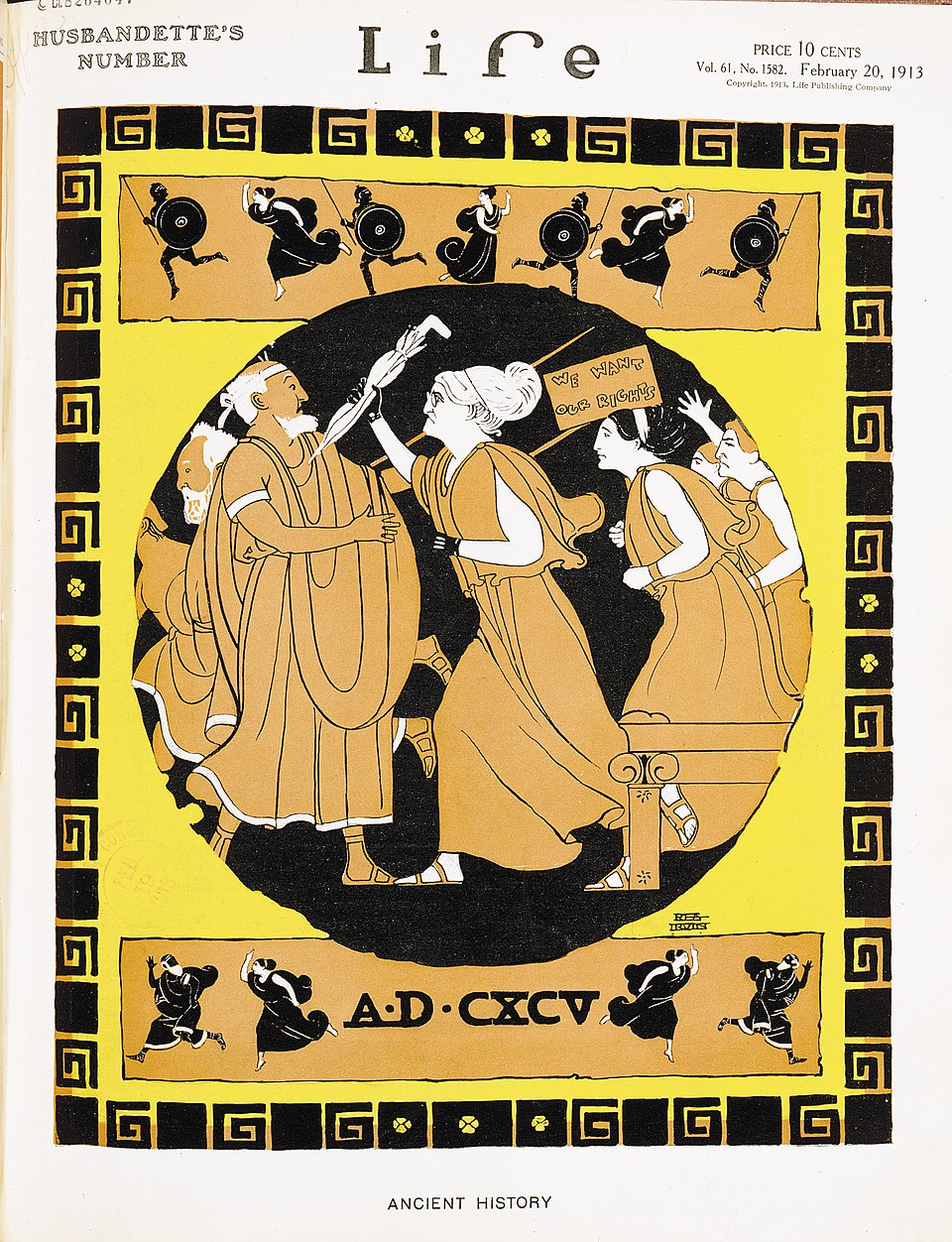
Cover of Life magazine v. 61, no. 1582 (1913 February 20) shows a Susan B. Anthony-like figure in classical dress thrusting an umbrella at a man in a toga. Another woman holds sign reading "We want our rights." Cover art by Rea Irvin.
Date Created:
Year Created: 1873
Historical Theme:
Collection this Document is Affiliated with:
Description: On June 18, 1873, Justice Ward Hunt pronounced Susan B. Anthony guilty of illegal voting, and the next day he set her fine. Hunt’s opinion on the question of women’s right to vote was overshadowed by his decision to render a verdict without consulting the jury. In this editorial from a newspaper in Trenton, New Jersey, Justice Hunt’s actions are compared to those of a New York state judge, Noah Davis, in a case involving George Francis Train in the spring of 1873. Many editors made the comparison, but in fact Judge Davis directed the verdict of not guilty.
Categories of Documents:
“Miss Anthony’s Case” Miss Susan B. Anthony, who has been on trial for some days past in the U.S. Court, at Canandaigua, N.Y., for voting, was, on Wednesday, pronounced guilty by the Judge—not by the Jury—and on Thursday sentenced to pay a fine of $100 and the cost of the prosecution. Before sentence was passed Judge Selden [Anthony’s attorney] made a motion for a new trial upon the ground of a misdirection of the Judge in ordering a verdict of guilty without submitting the case to the jury. He argued the right of every person charged with crime to have the question of guilt or innocence passed upon by a constitutional jury, and that there was no power in this court to deprive her of it. The District Attorney replied, and the Court denied the motion. Is it not possible, yea, certain, that in this view of the case Judge Selden was right and Judge Hunt was wrong? Why have juries at all, if Judges can find verdicts—or direct them to be found, and then refuse to poll the jury, which amounts to just the same—without any reference whatever to the jury? The case is very similar to that of Judge Davis, of New York, in the Train trial, where the Judge ignored the jury, and for which not only was Judge Davis’ action set aside by another Judge, but the press of the whole country condemned the act so pointedly and almost universally that it was expected no other Judge would ever be guilty of a like offence. Whether female suffrage is right or wrong, legal or illegal, it is not our intention now to discuss; but we do say now, and expect ever to say, that action so arbitrary and unjust as that of Judge Hunt in this case, and that of Judge Davis in the Train case, should meet with condemnation from all lovers of fair-play.
Citation: FJC, www.fjc.gov/sites/default/files/trials/susanbanthony.pdf. Accessed 11 Apr. 2025.

